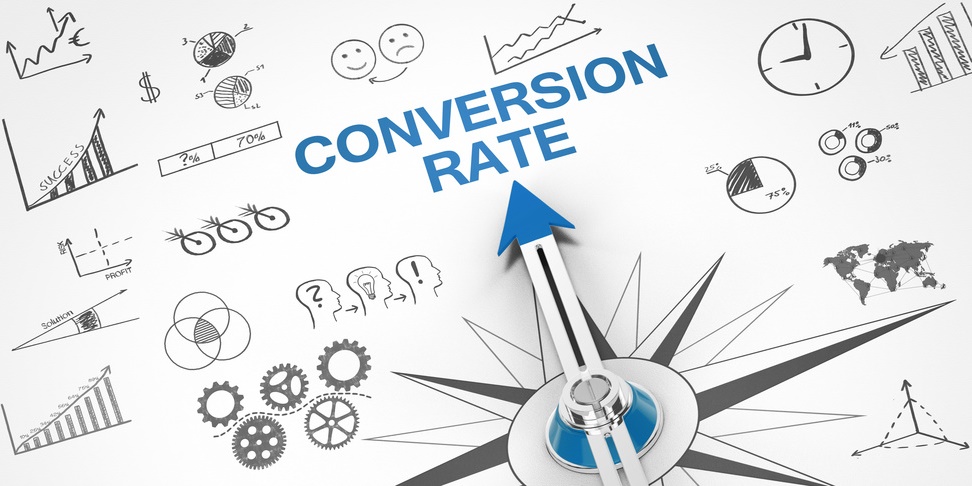One of Catchi’s Senior Website Conversions Specialist, Roland Mirabueno, previews his speech at the upcoming Genius Marketing Summit in Kiev, Ukraine at 20-22 May 2016 which will be attended by more than 2500 internet marketing experts and digital entrepreneurs.
If You Spend Money To Get Traffic, Start Doing CRO ASAP
The biggest mistake corporations make about their traffic is the idea that certain kind of traffic is free. There is no such thing as free traffic.
Every visitor you have on your website has been paid for. Whether it’s advertising cost or the thousands of dollars you pay your SEO expert/writer/agency every month, or the hundreds of hours you put in maintaining your website, your traffic comes with an actual calculable cost.
The question is, if you are investing this much money on getting traffic to your website, why are you not focusing on maximising the revenue you get from your investment?
Everything starts when your visitor types a query on Google.
If you happen to appear in the search results, your visitor will give you 7 seconds to convince them that you have the answer to their query. They open several tabs from the different search results and quickly closes the ones they deem irrelevant. Your website’s job is to make sure it is clear enough to convince your visitors that it has the answer.
The online buying behaviour of consumers is rapidly changing and rapidly evolving along with the new technology being introduced to the market every day. Your website that converts this month, can be outdated next month. The message that your customers respond to this month, can become irrelevant next month.

Your potential customers are evolving and so should your website. And this evolution should be scientific and calculated.
To maximise the revenue you get from your traffic, you need to do 3 things:
- Remove distracting elements from your website to guide your visitors to what action they need to take
- Add new elements to your website to effectively communicate your value proposition
- Tweak existing elements to have a stronger trigger to your visitors’ emotions
But which elements do you remove, add, or tweak?
That’s where Conversion Rate Optimization comes in.
Conversion Rate Optimization is a data-based process of finding persuasive elements on your website to convince your traffic to engage (in most cases ‘buy’) from you.
By analyzing your internal data (analytics and customer feedback) and your external data (traffic sources and competition), you be able to identify “hypotheses” on why some of your customers buy and why some don’t. Based on these hypotheses, you run experiments to understand the “why” behind your traffic’s behaviour. And based on the results of your experiments, you adjust your marketing.
This is a rigorous process of discovery, analysis, experimentation, and pivoting to keep up with the rapidly evolving market trends to maximise your revenue.
There is a reason WHY your traffic buy and there is a reason WHY they don’t. CRO is about discovering the answers to these WHYs.
Maximise Your Revenue with CRO
A common question online marketers have about their experiments is “why did it work for that website, but not for mine?”
The most basic CRO you can do is copy what other websites are doing and implement it on your website.
It’s not bad, but it’s nowhere near good.
Big e-commerce companies spend hundreds of hours, have big dedicated teams, and follow a tight process when conducting their CRO efforts.
They have a compelling reason that works for their specific audience and their particular brand to conduct an experiment in a particular way.
Copying their experiment may work for you, but it’s purely coincidental.
But coincidental is not where you want to base your revenue to.
You want to be methodical.
The first thing you need to do is to dive into a qualitative and quantitative analysis of your website and come up with a list of buying appeals and buying objections.
What elements of your website/product is the most appealing for potential customers? Are they communicated effectively on the website?
What could be the biggest buying objections that they may have? Have you addressed these objections?
The 2 big differences between a seasoned expert and a beginner in this sense is:
- How do they come up with the right questions?
- How do they come up with experiments to address these questions?
Finding the right questions and identifying a proper experiment that address the correct question are key to a successful effort in maximising your revenue.
And each day you are not answering these 2 questions, is another day where you waste a lot of your money getting traffic who will just close your website without buying anything from you.

